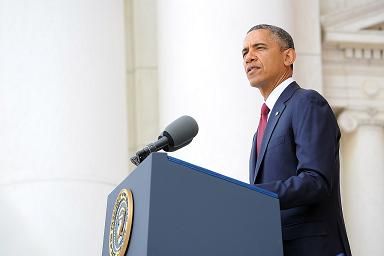U.S. to break clean energy records in 2015
The U.S. energy sector is set to break a number of renewable energy records this year, according to a new report from Bloomberg New Energy Finance (BNEF)

The U.S. energy sector is set to break a number of renewable energy records this year, according to a new report from Bloomberg New Energy Finance (BNEF).
The study suggests that greenhouse gas emissions from the power industry could fall to their lowest level since 1994.
BNEF published a series of forecasts on Thursday detailing how 2015 should see various records set in terms of shuttered coal-fired capacity, increased clean energy capacity, and natural gas generation.
The analyst company also said it expects carbon emissions from the energy sector to fall to 15.4 per cent below 2005 levels, increasing hopes that the U.S. can deliver on the Obama administration's pledge to reduce emissions by 28 per cent by 2030 compared to 2005 levels.
In a statement, William Nelson, head of North American analysis at BNEF, said: "More interesting than the single-year drop in emissions are the 'structural' impacts that will live on for decades. Emissions can rise or fall year-to-year based on weather anomalies and volatile fuel prices - but in 2015, we'll take a giant, permanent step towards de-carbonising our entire fleet of power plants."
The report predicts that a record 18GW of new renewable energy capacity will come online in 2015, including 9.1GW of new solar installations and 8.9GW of new wind capacity.
The study also found that the coal power industry could see 23GW of capacity go offline as ageing power plants reach the end of their lifespan
The abundant natural gas supplies in the U.S. also undermine the financial case for coal power, while the Obama administration's emissions regulations are also having an impact an impact in reducing the countries reliance on fossil fuels.
Nelson said: "De-carbonisation will continue post-2015…We may never again see 23GW of coal capacity retire in a single year; and renewable build could drop significantly in 2017, when important federal tax incentives step down or expire."
The forecasts represent a further boost to a U.S. clean power sector that has benefitted from a series of measures from the Obama administration to prioritise climate action and scale up investment in renewable energy.
An example of the new initiatives includes the Environmental Protection Agency’s preparation of new rules designed to restrict the use of carbon intensive coal-fired power plants.
The White House has also repeatedly defended the tax breaks for renewable energy projects.


